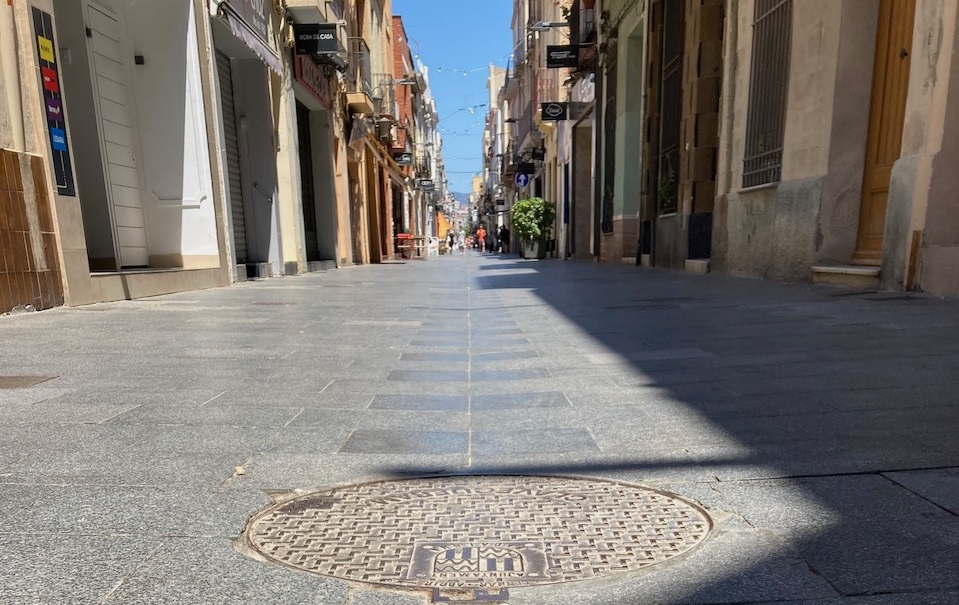UPF congress tackles issues related to the growth of diseases spread by mosquitoes in urban settings
UPF congress tackles issues related to the growth of diseases spread by mosquitoes in urban settings
UPF congress tackles issues related to the growth of diseases spread by mosquitoes in urban settings
The international conference Urban Spaces and Mosquitoes on a Changing Planet will take place at the Ciutadella campus between 23rd and 25th March, with the participation of academics, professionals and political leaders who will approach this problem from a multidisciplinary perspective.

Urban Spaces and Mosquitoes on a Changing Planet is the title of the international congress organised by Pompeu Fabra University, due to take place from 23rd to 25th March at the Mercè Rodoreda building on the Ciutadella campus. It aims to be a meeting point for academics, professionals and political leaders from around the world who work in different geographical and socioeconomic contexts to pool their ideas and knowledge about diseases spread by mosquitoes in urban settings.
The conference, which has the support of UPF's Planetary Wellbeing initiative, as well as from projects with European funding and the participation of the UPF Human Mosquito Interaction Project and IDAlert, will hold its opening ceremony on 23rd March at 9am, in the Mercè Rodoreda building auditorium. It will include interventions from Carla Lancelotti, director of the University's Planetary Wellbeing Research Centre, and John Palmer, researcher from the Sociodemographics Research Group at UPF's Department of Political and Social Sciences and member of the event's scientific and organising committee.
John Palmer: "The conference is based on the idea that diseases spread by mosquitoes are a complex socioecological problem that cannot be dealt with effectively without a wide range of interdisciplinary perspectives."
The conference programme for both 23rd and 24th March will include a conference session (at lunchtime) and three sessions (two in the morning and one in the afternoon) which bring together different presentations, in addition to
The organising committee includes UPF lecturers John Palmer and Karl Broome (Department of Political and Social Sciences) and Mireia Artigot (Department of Law). All three are also on the scientific committee, together with Frederic Bartumeus (CEAB-CSIC), Rachel Lowe (BSC), Joacim Rocklöv (Universität Heidelberg) and Alessandra della Torre (Università di Roma "Sapienza")
Experiences and research with parallels between Barcelona and other European cities
The two conferences are being led on the one hand, by Shannon L. LaDeau, researcher from the Cary Institute of Ecosystem Studies in New York (23rd March from 14.00-15.00) under the title "Legacies of segregation influence mosquito ecology and human exposure in temperate cities". The presentation will describe the efforts of a multidisciplinary research team to discover change mechanisms in human-mosquito exposure in the city of Baltimore.
Similarly, Carsten Wergin, researcher from the University of Heidelberg in Germany (24th March, 14.00-15.00)
Other experiences to be presented in the congress will be those of Mohammed Shafiul Alam, researcher from the Centre for Diarrhoeal Disease Research Bangladesh (Dhaka, Bangladesh) (panel of 23rd March at 9.15am) with an article about mosquito control in that area, which provides a contrast to the efforts at mosquito control being implemented in European cities, and Antonios Michaelakis, researcher from the Benaki Phytopathological Institute of Greece, who will present a study about his experience with researching mosquitoes in an urban mediterranean context, which shares some similarities with Barcelona.
A multidisciplinary congress which aims to find answers to a complex sociological problem
Even though each urban system has its own particular challenges, the processes of globalisation, mobility and climate change mean that diseases spread by mosquitoes are a problem that transcends regional and national boundaries. Therefore, the fundamental aim of the congress is to stimulate new thinking and public policies which allow for planning, designing and intervening in urban spaces, to help prevent the growth of diseases spread by mosquitoes, especially in the context of anthropogenic climate change.
John Palmer, who is a member of the scientific and organising committee of the event, is principal researcher of the Human Mosquito Interaction Project (which he coordinates) and IDAlert, as well as being co-director of the citizen's science project Mosquito Alert. He highlights the importance of pooling knowledge which is emerging in this ever-changing context: "This congress brings together experts studying diseases spread by mosquitoes and person-mosquito interaction in different urban contexts from around the world, and we are doing this just at a time when climate change is causing a significant growth in the distribution of mosquitoes which are transmission vectors, a fact that is forcing many cities to deal with this challenge for the first time", he explains.
According to John Palmer, "the conference we are organising at UPF is based on the idea that diseases spread by mosquitoes are a complex socioecological problem that cannot be dealt with effectively without a wide range of interdisciplinary perspectives. So this is a unique opportunity for researchers and professionals from different cities to learn from one another and to discuss the issue from the different disciplinary perspectives involved."
